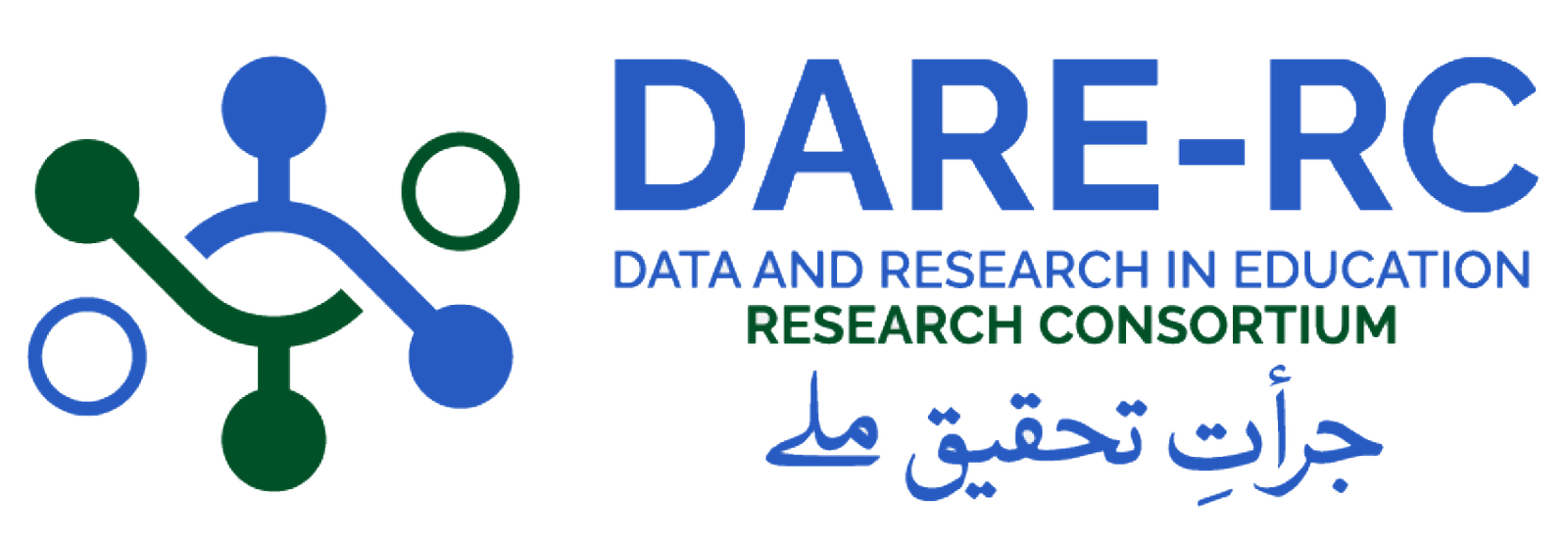The Data and Research in Education – Research Consortium (DARE-RC) convened a policy roundtable in Quetta to synergise DARE-RC’s research with Balochistan’s education policies. The event convened representatives from government, academia, and development partners to discuss emerging evidence on education policy in Balochistan. Hosted at the Serena Hotel in Quetta, the event was jointly organised by Oxford Policy Management (OPM), Aga Khan University Institute for Educational Development (AKU-IED), and Sightsavers as part of the DARE-RC programme funded by the UK Foreign, Commonwealth and Development Office (FCDO).
Prominent policymakers, educationists, and researchers from Balochistan emphasised the critical need to build a practice of data utilisation within the education sector to ensure impactful policy decisions, particularly for improving the access and quality of learning for all children, especially those who are out of school. The event focused on integrating rigorous research insights into the province’s education priorities.
The discussions across key themes, including Equitable Access and Inclusion, Governance, Management, Accountability and Effective Data Use, and Quality of Teaching and Learning will directly influence targeted policy formulation. The DARE-RC consortium asserted its ongoing engagement with Balochistan’s education sector, ensuring that the latest research continuously informs policy.
Mr Salim Salamah, Education Policy Adviser at the British High Commission said, “There is a lot of important and interesting research taking place by brilliant Pakistani academics and there are concerned policymakers working to advance critical reforms in the education system especially in the case of out of school children. A main assumption in designing the DARE-RC programme was to create space to generate more channels of engagement between these two groups. Today’s discussion is one of the many attempts to create these channels.”
“Strengthening the capability of policymakers is key to drive effective policymaking, and this requires a deep to analysis of the education system,” said Ms Rahila Hameed Durrani, Minister, School Education Department, Balochistan. She emphasised, “One of our biggest challenges is out of school children and despite our efforts, we suffer from lack of the latest data and evidence, so I am grateful to DARE-RC for approaching us. As part of the Chief Minister’s vision, we want to work on reducing the dropout rate, especially for young girls, by using effective tools. We hope that DARE-RC’s work will help us to achieve this.”
Mr Asfand Yar Khan, Secretary, School Education Department, Balochistan further highlighted, “’Research isn’t generally encouraged in the public sector and this gap between academia and government needs to be bridged with the help of such dialogues. I encourage the promotion of research in our work and the involvement of Balochistan’s local resources in driving change.”
Ms Saima Anwer, Programme Director, DARE-RC, said, “The spirit of DARE-RC is how to bridge the gap between research and policymaking so that the research being carried out in universities is relevant to the realms of the government’”.
Dr Ehtasham Anwar, Team Lead DARE-RC, assured that DARE-RC will proactively work to offer required policy recommendations by the Government of Balochistan. He said, “Pakistan lacks sufficient data and international practices in education, and DARE-RC was introduced to address this gap and identify broad research areas to support policy and decision making.”
The DARE-RC leadership team closed the session with key takeaways and a forward-looking agenda, committing to DARE-RC’s continued engagement with Balochistan’s education sector and a focus on translating evidence into actionable policy.
Following its broader mission, DARE-RC is a pioneering collaborative knowledge-building programme for empowering policymakers to drive education reform. Through strategic dialogues like the Balochistan Policy Roundtable, the consortium contributes to a culture of effective data-use for education policymaking, beneficial for all the children, especially the most marginalised.
